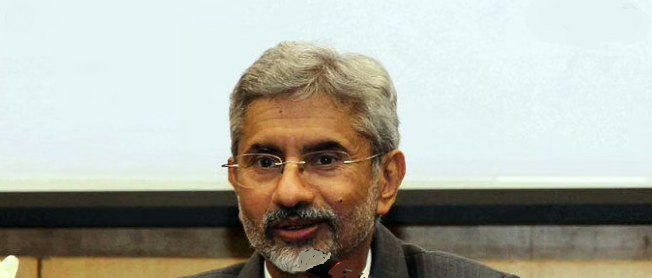
Greater expectations from India

After a decade from the 2008 global financial crisis to the 2020 coronavirus pandemic, there has been a real transformation of the world order, with the nature of international relations and its rules are changing before our eyes. For India, this means optimal relationships with all major powers to best advance its goals. A good global footprint is now in the making that leverages India’s greater capability and relevance, as well as its unique diaspora. This era of global upheaval entails greater expectations from India, putting it on the path to becoming a leading power. For India, this means optimal relationships with all the major powers to best advance its goals and requires a bolder and non-reciprocal approach to its neighbourhood.
India’s External Affairs Minister S Jaishankar in his new book “The India Way Strategies For An Uncertain World” that incorporates a wide variety of issues, shaped by the broad trends in the global environment caused by Covid-19. India will have to rethink its growth models as following the “post-1991 mantras” makes “little sense” with a great emphasis on self-reliance.
“India too will be shaped by the broad trends in the global environment that the coronavirus will intensify. It certainly needs to take into account the more direct consequences of the pandemic. Its destructive impact naturally demands a strategy of national revival and warrants a fundamental rethink about our growth model” he writes in the book published by Harper Collins. The rethink was “probably coming anyway” given how much the current economic framework has “hollowed out” India’s manufacturing capabilities. On the question of free trade agreements, there is already an ongoing debate about the adequacy of our preparations” to engage the global economy more intensively. Many concerns stemming from the policies of our partners remain unaddressed and competing against those with structural advantages has been difficult as evidenced by India’s growing trade deficit Jaishankar continues.
“Going further down that very pathway without a course correction has obvious implications” as there are direct livelihood and social stability consequences and a revival strategy, therefore needs to be chalked out with the utmost deliberation. As India discovered in the past, economic strategies “ have to be in consonance” with not only its own national situation but the global one as well and if we are significantly out of step with the world, as we were in 1991, then they are difficult to sustain” Jaishankar claims. Three decades later, India’s capabilities competitiveness and trade are under stress, due to the post-1991 belief “that we could rely on the costing of others abroad to build our own businesses at home” had come at a high price.
The obsessive quest for profit margins has ended up eroding domestic capabilities and competitiveness. “Openness abroad ironically has led to stagnation at home, discouraging innovation, and killing creativity. MSMEs have become the brunt of the damage the pandemic has exposed the larger strategic complacency” according to Jaishankar.
If India is to take stock “ it could begin with the realisation that the world has been more protectionist than we expected and continuing to follow the post-1991 mantras in such circumstances make little sense”, Jaishankar explains.
“ The global situation calls for a much greater emphasis on self-reliance and such a policy would encourage approaches that would be more self-generating and self-sustaining with greater innovation and creativity. It’s only when its own production flourishes at home that India can make an economic difference abroad. So there should be a greater emphasis on Make in India. “ We must also be caring for our own interests and support them to compete globally. Narrow economic interests that drove past policies cannot prevail over the welfare of the many. This is not to make a case for autarchy but to argue for greater capacity building so central to comprehensive national power. Current times must clearly mandate that every nation must have cards to play in the global arena big nations especially so.” Jaishankar laments.
As with climate change and terrorism, pandemics (Coronavirus, SARS, MERS, et al) have now demonstrated that “there are issues on which no one can really stay out”.
Jaishankar is very conscious of balancing India’s national interest with international responsibilities and places this thinking in the context of history and tradition, appropriate for a civilizational power that seeks to reclaim its place on the world stage.
The India Way Strategies for an Uncertain World by S JaiShankar by Harper Collins, £21.84, 240 pages.
